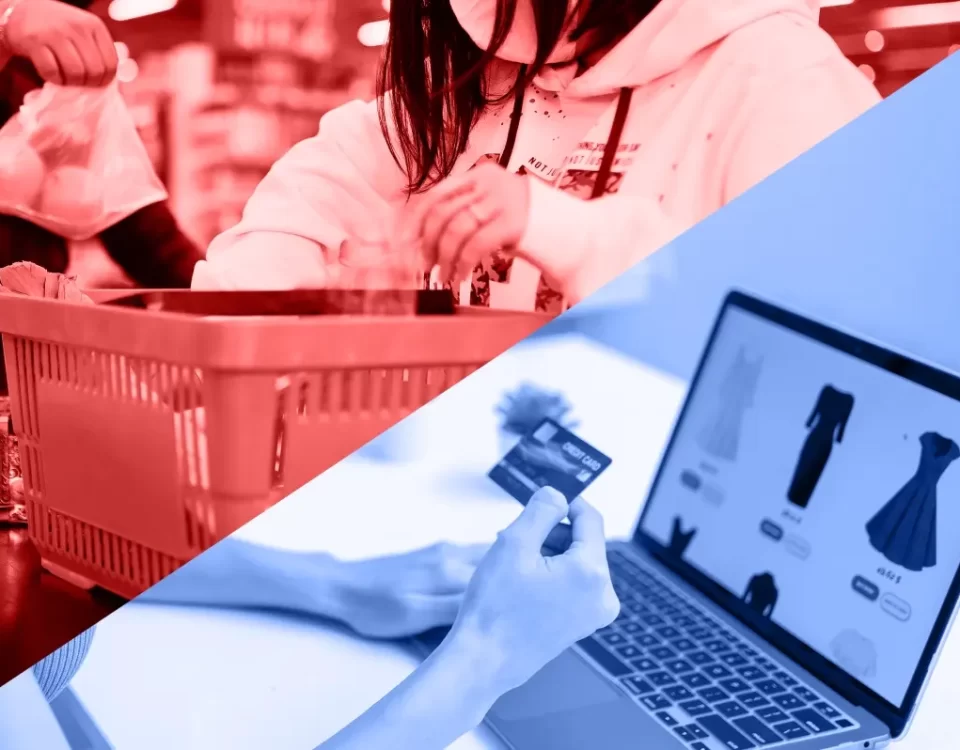What are the Shopping Habits of Generation Z?

Netflix Innovation Strategy: A Step-by-Step Guide
July 17, 2023
Know about Wonder, Wander and Market Research
November 3, 2023Generation Z is the generation that comes after Millenials and before Generation Alpha. Gen Z, also known as zoomers or iGeneration, refers to individuals who grew up on both sides of the millennium transition. Generation Z includes individuals born between the mid-1990s and early 2010s, although no exact date range has been defined.
Compared to previous generations, Generation Z is often described as well-educated but more stressed and depressed. They usually have high expectations for themselves that they struggle to achieve. Gen Z is a new type of shopper and consumer to get to know.
Revolutionizing the world of online retail
Until now, Generation Z has been identified as the consumer group with a unique perspective on consumption and shopping compared to previous generations. The latest generation has recently joined the workforce and possesses significant buying power. Brands must earn a place in Gen Z’s wallets by offering high-quality items and closely monitoring spending.
Encourages sustainable shopping practices
Generation Z’s concern for the planet and future presents a significant opportunity for sustainable business growth. They consider that the generations before them represented overconsumption, capitalism and materialism.
Generally spend less
Many Gen Z people witnessed their parents suffer severe financial losses during the Great Recession of 2008. As a result, they tend to be more cost-conscious and focused on getting the best value for their money. 19% of Generation Z are willing to buy on credit, compared to Millennials, where 30% are inclined to do the same.
Spends more on sustainable products
Consumers belonging to Gen Z tend to purchase sustainable and high-quality products more frequently. According to a report from First Insight, 73% of Generation Z consumers are willing to pay 10% more for sustainable products. They prefer personalized products and align with brands sharing their political views.
The mobile-first, digitally native generation
Social media plays a huge role
It is a fact that consumer habits have shifted towards social media. Generation Z has grown up with phones and has a unique perspective on social media and digitization. They use social media to find inspiration, research products, and connect with their favorite brands.
Social commerce growth
Social commerce is a growing trend in e-commerce, and it is expected to continue to increase in popularity in the future. Currently, fashion is the largest category for social commerce, but it is likely that other industries will also begin to adopt this trend. Overall, social commerce offers a powerful way for businesses to connect with customers and sell products through social media platforms.
Influencers have a significant influence
Gen Z shoppers exhibit less trust in companies compared to older age groups. They follow social media influencers with large followings on Instagram and YouTube.
A Google study found that 70% of teens view YouTube personalities as more relatable than traditional celebrities, especially those they subscribe to. This is also where they decide whether your product is worth buying or not. Therefore, retailers are realizing the importance of transitioning from traditional digital marketing to influencer marketing.
Mobile payments
Generation Z has widely adopted mobile payments such as mobile apps and mobile wallets. Over the past few years, mobile apps have increased in popularity and given great results. Companies with a mobile app have a significant advantage compared to companies that don’t have an app.
Conclusion
In conclusion, Generation Z’s shopping habits significantly differ from previous generations. They are tech-savvy, socially conscious, and have value sustainability. Brands must adapt to their preferences by offering high-quality, sustainable products and leveraging social media and influencers. Gen Z’s inclination towards mobile payments and social commerce also highlights the need for businesses to stay digitally agile to capture this emerging consumer market.





